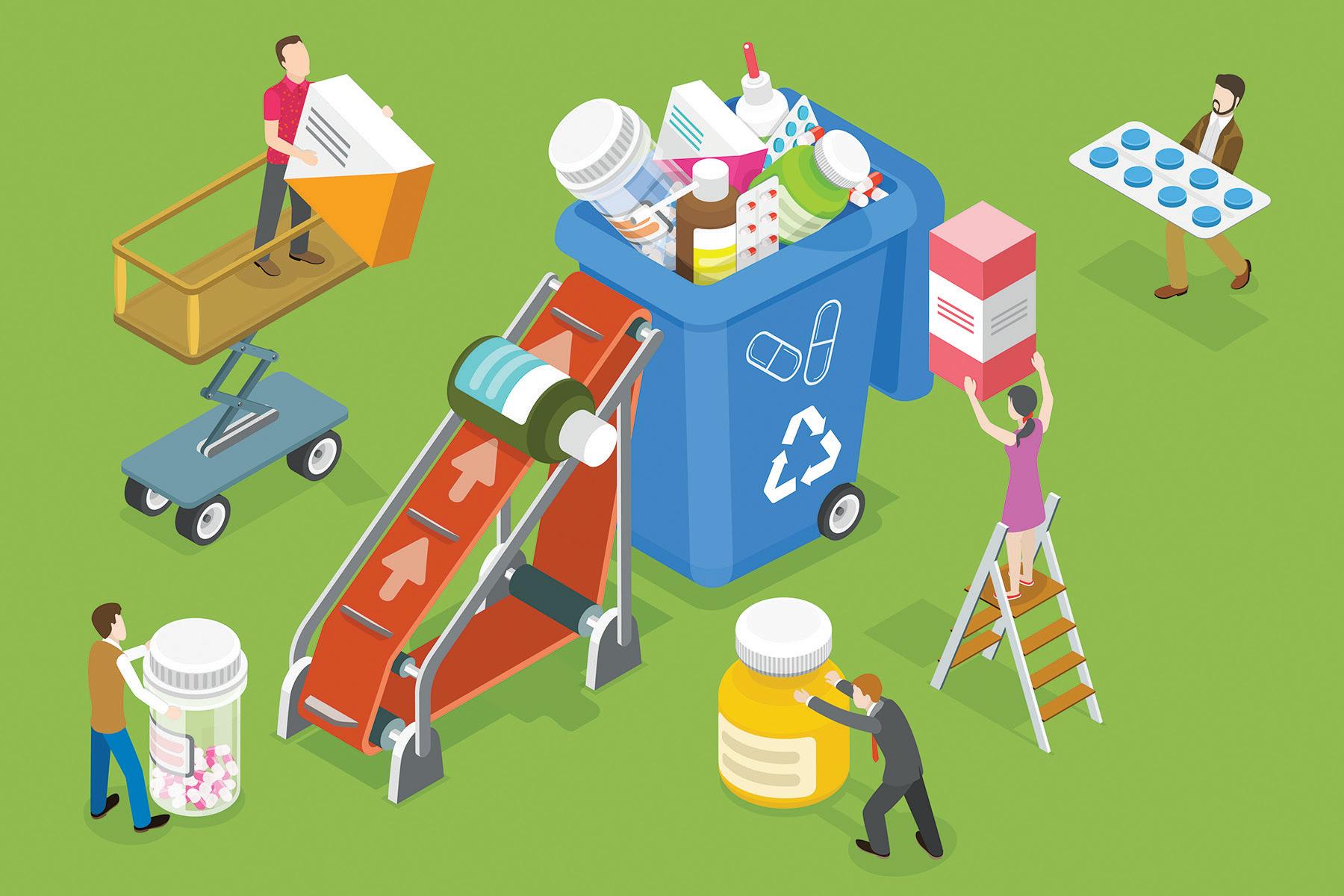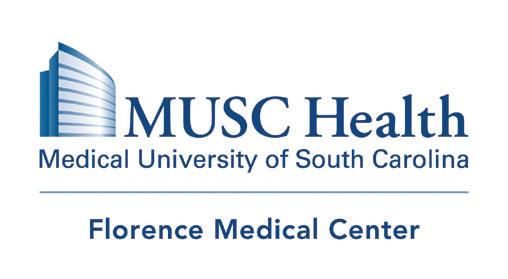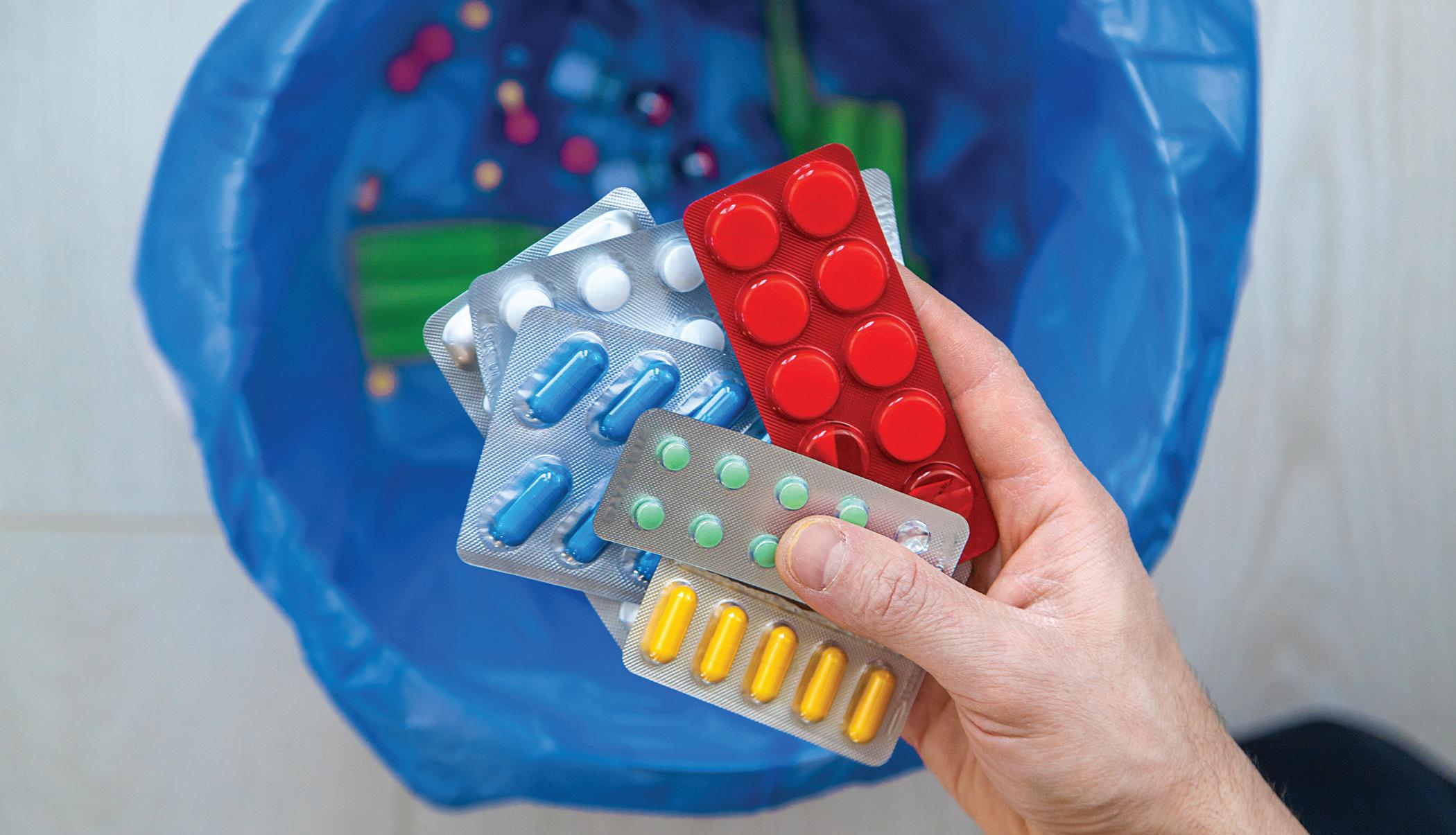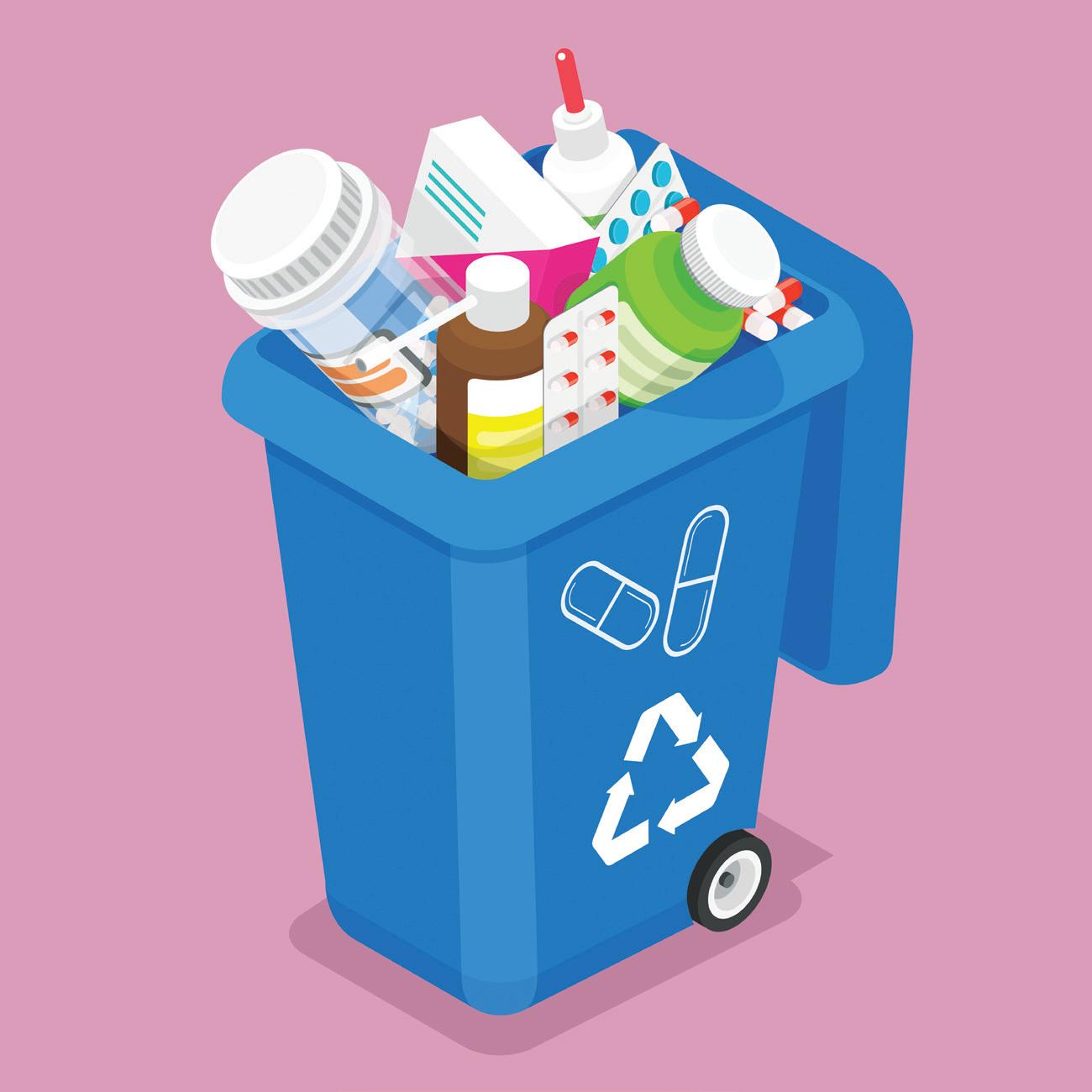
2 minute read
HOW DO I... Dispose of My Unwanted Medications?
from June 2023
by VIP Magazine
story by Crystal Davis, PharmD, MUSC Health Outpatient Pharmacy

Advertisement
“How do I dispose of my unwanted medications?”
This is a common question asked by patients at community-based pharmacy counters. Improper medication disposal can have negative effects on our environment and wildlife and can lead to drugs getting into the wrong hands and accidental poisoning. Knowing when and how to dispose of unneeded medications can protect your family and environment.
The United States has tracked the effects of pharmaceuticals in wastewater for decades. Pharmaceuticals that enter lakes and streams can alter fish DNA and the reproductive cycles of fish and amphibians. Pharmaceuticals that make their way into our drinking water could lead to altered hormone levels, promote the development of certain cancers, and could contribute to antibiotic resistance.
Any medication that you are no longer taking should be properly discarded. One of the best ways to dispose of unwanted medications is through the Drug Enforcement Agency’s (DEA) National Drug Take Back Day event held twice a year. Dates and locations for take-back days are listed on the DEA website. Secure collection drop boxes found in many local pharmacies are another great way to dispose of medications. Lists of these locations can be found on the South Carolina Department of Health and Environmental Control (SCDHEC) website. Mail-back programs are also an option but may require a fee upfront for the prepaid bag or envelope that is used to send the medication to the appropriate disposal facility.
Federally sponsored takeback days and other sponsored programs are considered ideal, but at-home disposal is what is most practical for many patients. In this case, it is important for patients to know the correct way to dispose of different types of medications. For medications that can be disposed of in the regular trash, it is recommended to remove the medication from the original container, mix the medication with an undesirable substance, such as kitty litter or used coffee grounds, and dispose of the mixture in a sealed container. All patient-specific information should be removed or made illegible on the vial or bottle that held the medication prior to throwing it into the trash.
While flushing medications or pouring them down the drain is not typically recommended, there are certain drugs that the FDA does recommend disposing of this way when home disposal is needed. The FDA has a published list of flushable medications that includes, but is not limited to, opioids. Opioids include medications such as oxycodone, hydrocodone, buprenorphine, methadone, morphine, and fentanyl patches. These medications can lead to intentional or accidental overdose, and the FDA considers flushing these drugs to be more of a benefit in the prevention of human harm than a risk to the environment.


All syringes and medications administered with an attached needle, such as EpiPens, should be considered Sharps waste. Sharps containers are available to purchase online and at many local pharmacies. Sharps containers may have a mail-back option. This means that when the container is full, it is mailed to an appropriate disposal facility. If a mailback option is not available, the sharps container lid should be secured and then the properly labeled container may be thrown in the regular household trash. SCDHEC also has a program called “Get to the Point”, that outlines how to safely dispose of sharps waste when you do not have a sharps container. This program outlines how empty bleach or detergent bottles can be used to collect sharps waste and provides a printable label that should be affixed to the
Safe medication disposal helps protect everyone. It is important to note that the disposal methods outlined in this article pertain to home medication disposal only. Institutional settings have different requirements and guidelines for safe medication disposal. Also, it is important to regularly check with your state government for updates on medication disposal since these policies can change. All the information above and more can be found at deadiversion.usdoj.gov and scdhec.gov. Finally, if you have any additional questions, your local pharmacist should be able to help you choose the best way to dispose of medications to keep your home and environment safe. We are happy to answer your questions at the MUSC Health Florence Medical Center Outpatient Pharmacy or by calling 843-674-5180.










